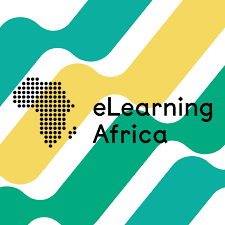eLearning Africa: Could ICTs be the Key to Ending Hunger in Africa?
 Education and technology can play an important role in ending hunger and malnutrition in Africa once and for all.
Education and technology can play an important role in ending hunger and malnutrition in Africa once and for all.
That is the view of leading experts in communications technology and food security, who will be attending a special session on malnutrition at this year’s eLearning Africa conference in Kigali, Rwanda from 26 – 28 September.
Current estimates show that around 14.5 per cent of people living in Africa’s poorest regions are hungry or malnourished. The most obvious victims are often children and, according to the World Health Organisation, hunger and malnutrition are still the biggest causes of child mortality in developing countries.
However, that could all be about to change.
Speakers from Ghana, Rwanda and Zambia will show how imaginative initiatives in the education sector in several African countries are already helping to combat malnutrition. They are convinced that ICTs, which are increasingly being used to improve African agricultural output, together with a new focus on providing the right people with the necessary skills, could be the key to ending hunger permanently.
One of the speakers at the eLA session will be Kofi Barimah of Ghana Technology University College (GTUC), who will explain how GTUC has used eLearning to enhance its nutrition programme. He points out that malnutrition is still a serious problem in parts of Ghana.
“‘Kwashiorkor’ is a term reserved for severely malnourished children
“’Kwashiorkor’, which has found its way into the English dictionary, was derived from ‘Ga’, a native
Ghanaian language,” he says. “‘Kwashiorkor’ is a term reserved for severely malnourished children
and infants resulting from a deficiency in dietary protein. The mere fact that the English name for a
malnourished child comes from a Ghanaian language may help elucidate the seriousness of this
problem in Ghana and Africa as a whole.”
With the aid of a small grant from the Catholic University College of Ghana and in partnership with
the University of Southampton and the International Malnutrition Task Force, GTUC has integrated
an online course on “caring for infants and children with malnutrition” into its degree programme on
Public Health.
The eLearning course, which has successfully integrated new learning and teaching materials, gives
students and faculty members access to best practices for maternal and child nutrition, using both
CDs and online learning.
“The project has been very much successful, with students applauding the IMTF and the UoS for
such a wonderful intervention,” says Barimah. “The team has been able to roll out the integration of
the first batch of students with promising results. Over one thousand students have been trained
during the first year of the introduction of the modules and others are yet to benefit.”
Mudukula Mukubi of the Ndola Nutrition Organisation in Zambia will present evidence of the
positive effects of ICTs on the delivery of key skills to households headed by women or children. The
research is part of a project, funded by SPIDER, on self-help programmes for the households.
Lack of entrepreneur and livelihood skills
“The project seeks to address the lack of entrepreneur and livelihood skills faced by poverty-stricken
women and child-headed households in the rural parts of Luanshya, Masaiti and Ndola districts of
Zambia,” he explains. “The project provides skills training in poultry and soybean production… using
ICT tools, including smart phones to access and exchange information on social media.”
Rwanda’s experience in implementing a World Health Organisation (WHO) programme on the
Integrated Management of Childhood Illness (ICMI) will be the focus of a presentation by Jean de
Dieu Gatete of the Maternal and Child Survival Programme (MCSP). The programme, which is part of
the WHO’s strategy to reduce mortality and morbidity in children by improving the management of
common illnesses, was adopted by Rwanda in 2006 and is currently practised in public health
centres across the country.
However, in spite of national clinical guidelines for the treatment of all children under the age of 5,
only 65 per cent receive the recommended care. Fewer than 40 per cent of practitioners in Rwandan
health centres have received ICMI training. The MCSP programme, which has surveyed 148 Rwandan
health centres in 12 districts, has been exploring options for introducing alternative, sustainable and
low-cost approaches for the delivery of ICMI training to a larger number of providers.
“The project established that computer-assisted learning provided a real opportunity for training
health care professionals at low cost (around $178 per participant) compared to the standard
classroom based training ($472 per participant),” says Gatete.
With the aid of online learning as part of the MCSP programme, over 600 health care providers in
148 health centres have now already been successfully given on-the-job ICMI training.
“The completion of this computer-aided training programme (has) helped to increase the rate of
ICMI trained providers from 40 per cent to 79 per cent in 6 months.”
Rebecca Stromeyer, the founder and organiser of eLearning Africa, said:
“The full programme for this year’s conference is now online and I am very pleased that it includes
an in-depth focus on how ICTs can help to tackle the persistent problem of malnutrition in Africa. It
is shocking that, in the twenty-first century, so many people still go hungry. I am sure, however, that
ICTs can make a major contribution to solving the problem and to ensuring that children and
mothers get the care they need.”
The eLearning Africa conference is accompanied by an exhibition of new products, services and
solutions. It also hosts the annual eLearning Africa Ministerial Round Table, at which education and
ICT ministers discuss the latest developments in education and technology.
eLearning Africa 2018 – 13th International Conference on ICT for Education, Training and Skills
Development
September 26 – 28, 2018
Kigali Convention Centre, Kigali, Rwanda